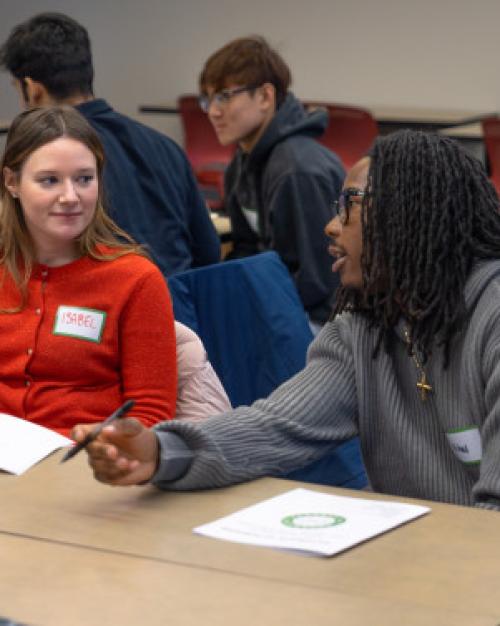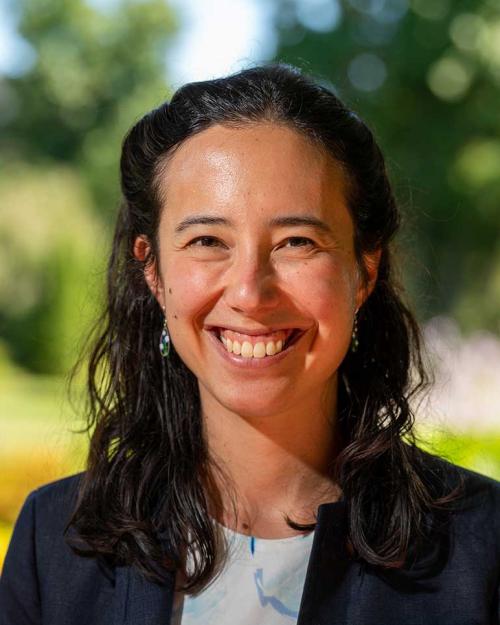Anna Ho, assistant professor of astronomy in the College of Arts and Sciences, has been named a Packard Fellow for Science and Engineering.
The fellowship from the David and Lucille Packard Foundation includes $875,000 in unrestricted funds to be used for research over five years. Ho is among a cohort of 20 early-career scientists and engineers receiving fellowships this year.
“The Packard fellowship will enable me to spend more time exploring new ideas and will support the growth of my group and my students’ development as scientists,” Ho said. “I’m excited to join an interdisciplinary group of researchers and to learn from the other Packard fellows.”
Ho’s research uses telescopes located all over the world and in space to study the lives and deaths of stars and the physics of those phenomena and other energetic cosmic events. Observations spanning the electromagnetic spectrum, ranging across radio, millimeter, optical, X-ray and gamma-ray bands, provide clues about the final stages of massive-star evolution and the formation of compact objects (neutron stars and black holes). Ho takes observations and interprets the data to elucidate the physical processes generating the emission and to unveil the responsible astronomical sources.
Her overarching goal, she says, is to connect the final stages of massive-star evolution and the formation of compact objects to the observed characteristics of supernovae, transients, and neutron stars and black holes.
The unrestricted fellowship funds “gives fellows the opportunity to experiment and lead cutting-edge research which has led to critical advancements that impact our daily lives,” according to a statement from the Packard Foundation. Packard Fellows have gone on to earn recognitions including Nobel Prizes in chemistry and physics, Fields Medals, Alan T. Waterman Awards, Breakthrough Prizes, Kavli Prizes and elections to the national academies of science, engineering and medicine.
Ho was recently selected as one of only 50 early-career fellows to participate in the Research Corporation for Science Advancement Scialog for “Early Science with the Legacy Survey of Space and Time.” Held over several days in Tucson in November, the Scialog will help the field make the most out of the data collected by the Vera C. Rubin Observatory, which will utilize the largest digital camera ever built to survey the night sky. Ho’s work was also recognized earlier this year with a Sloan Research Fellowship from the Alfred P. Sloan Foundation.
Recent Packard Fellows from Cornell include Noah Stephens-Davidowitz, assistant professor of computer science in the Cornell Ann S. Bowers College of Computing and Information Science (2023); Kirstin Petersen, associate professor or electrical and computer engineering and Aref and Manon Lahham Faculty Fellow in Cornell Engineering (2019); and Ilana Brito, associate professor and Mong Family Sesquicentennial Faculty Fellow in Biomedical Engineering in the Meinig School of Biomedical Engineering in Cornell Engineering (2017).
This story also appeared in the Cornell Chronicle.




